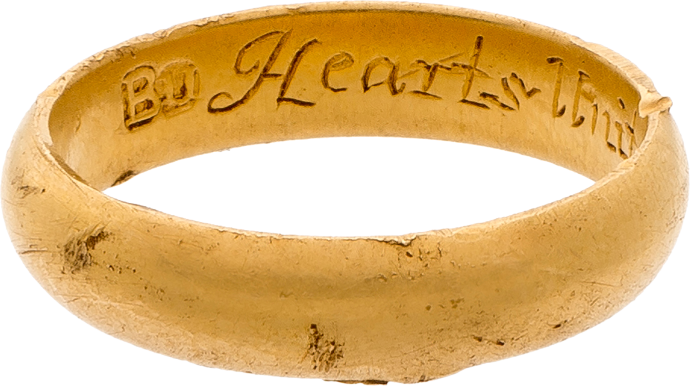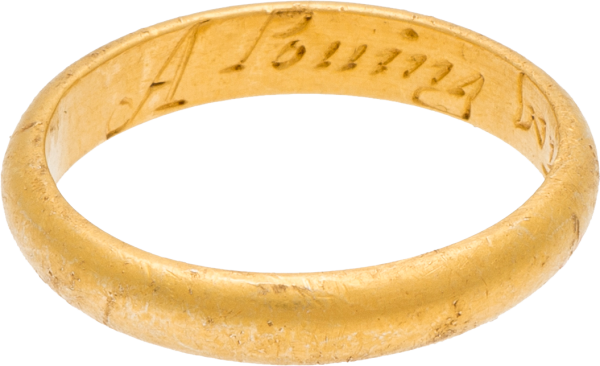


Posy Ring "Hearts united live contented"
, 18th century



Posy Ring "Hearts united live contented"
Description
Rings inscribed with posies or short rhyming poems, enjoyed great popularity in the seventeenth and eighteenth century England, when they served as wedding rings or as gifts between friends and lovers. The custom of exchanging small tokens with short amatory inscriptions led to the development of commonplace books and collections like Loues Garland, or Posies for Rings, Hand-Kerchers, and Gloues, and such pretty Tokens that Louers send their Loues, first published in 1624, Cupids Posies of 1674, and The Card of Courtship of 1715. Posy rings often had a maker's mark giving reference to the goldsmith who made the ring, a measure enforced by the guilds of goldsmiths to ensure a high standard of the craftsmanship and purity of the precious metals.
Wide gold band with D-section, plain on the exterior and on the interior it has the engraved inscription in italics "Hearts United live Contented". In a double punch the maker's mark inside the hoop shows the initials "Bu," and is yet to be identified. The ring shows traces of wear through age and use, but is in good wearable condition.
Literature:
Joan Evans records seven variations of this motto suggesting that this "posy" was well-known and popular (Evans 1931, p.47), cf. several rings in the British Museum, London (Dalton 1912, nos. 1187 -1190). The motto also appears on a ring in the Museum of London (62.4/95). For a history of posy rings with extensive list of posies, see Evans, 1931 and Anon., A Garland of Love: A Collection of Posy-Ring Mottoes, London 1907. For further information, see Dalton 1912, pp. 174 ff.; Scarisbrick 2007, pp. 74 ff., Taylor and Scarisbrick 1978, and Oman 1974, pp. 39 ff.
